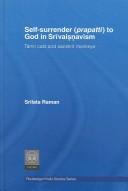| Listing 1 - 10 of 30 | << page >> |
Sort by
|
Digital
ISBN: 9781843318071 Year: 2009 Publisher: London Anthem Press
Abstract | Keywords | Export | Availability | Bookmark
 Loading...
Loading...Choose an application
- Reference Manager
- EndNote
- RefWorks (Direct export to RefWorks)
Book
ISBN: 9789460930119 Year: 2009 Publisher: Utrecht LOT
Abstract | Keywords | Export | Availability | Bookmark
 Loading...
Loading...Choose an application
- Reference Manager
- EndNote
- RefWorks (Direct export to RefWorks)
Grammar --- Indonesian languages --- Sri Lanka
Book
Year: 2009 Publisher: Belgium DGCD
Abstract | Keywords | Export | Availability | Bookmark
 Loading...
Loading...Choose an application
- Reference Manager
- EndNote
- RefWorks (Direct export to RefWorks)
Algae --- macroalgae --- Sri Lanka --- illustrations --- checklists --- marine --- coloured photographs

ISBN: 9780415544641 0415391857 9780415391856 0415544645 Year: 2009 Publisher: New York: Routledge,
Abstract | Keywords | Export | Availability | Bookmark
 Loading...
Loading...Choose an application
- Reference Manager
- EndNote
- RefWorks (Direct export to RefWorks)
Śaraṇāgati. --- Śrī Vaishṇava (Sect) --- Spiritual life --- Vaishnava literature, Tamil
Periodical
Year: 2009 Publisher: Colombo : Media Services,
Abstract | Keywords | Export | Availability | Bookmark
 Loading...
Loading...Choose an application
- Reference Manager
- EndNote
- RefWorks (Direct export to RefWorks)
Book
ISBN: 9782914777537 2914777531 Year: 2009 Publisher: Toulouse Anacharsis
Abstract | Keywords | Export | Availability | Bookmark
 Loading...
Loading...Choose an application
- Reference Manager
- EndNote
- RefWorks (Direct export to RefWorks)
Eden in literature --- Eden --- Sri Lanka --- Description and travel
Periodical
Year: 2009 Publisher: Homagama, Sri Lanka : Taprobanica Nature Conservation Society,
Abstract | Keywords | Export | Availability | Bookmark
 Loading...
Loading...Choose an application
- Reference Manager
- EndNote
- RefWorks (Direct export to RefWorks)
Natural history --- Zoology --- India --- South Asia. --- Sri Lanka.
Book
ISBN: 9788176466455 817646645X Year: 2009 Publisher: Delhi : B.R. Pub. Corp.,
Abstract | Keywords | Export | Availability | Bookmark
 Loading...
Loading...Choose an application
- Reference Manager
- EndNote
- RefWorks (Direct export to RefWorks)
Hindu legends. --- Art, Indic. --- Art, Sri Lankan. --- Rāvaṇa
Book
ISBN: 9042026979 9789042026971 9042026960 Year: 2009 Publisher: Amsterdam New York Rodopi
Abstract | Keywords | Export | Availability | Bookmark
 Loading...
Loading...Choose an application
- Reference Manager
- EndNote
- RefWorks (Direct export to RefWorks)
A colonial discourse has perpetuated the literary notion of islands as paradisal. This study explores how the notions of island paradise have been represented in European literature, the oral and literary indigenous traditions of the Caribbean and Sri Lanka, a colonial literary influence in these islands, and the literary experience after independence in these nations. Persistent themes of colonial narratives foreground the aesthetic and ignore the workforce in a representation of island space as idealized, insular, and vulnerable to conquest; an ideal space for management and control. English landscape has been replicated in islands through literature and in reality – the ‘Great House’ being an ideological symbol of power. Island Paradise: The Myth investigates how these entrenched notions of paradise, which islands have traditionally represented metonymically, are contested in the works of four postcolonial authors: Jamaica Kincaid, Lawrence Scott, Romesh Gunesekera, and Jean Arasanayagam, from the island nations of the Caribbean and Sri Lanka. It analyzes texts which focus on gardens, island space, and houses to examine how these motifs are used to re-vision colonial/contested sites. This book examines the relationship between landscape and identity and, with reference to Homi K. Bhabha, considers how these writers offer an alternative space for negotiating the ambivalence of hybridity.
Caribbean literature --- Sri Lankan literature --- Paradise in literature. --- Caribbean literature. --- Sri Lankan literature. --- History and criticism. --- 1900-1999
Book
ISBN: 1441625941 9781441625946 1438428375 9781438428376 Year: 2009 Publisher: New York : State University of New York Press,
Abstract | Keywords | Export | Availability | Bookmark
 Loading...
Loading...Choose an application
- Reference Manager
- EndNote
- RefWorks (Direct export to RefWorks)
What about Buddha's wife? We all know that Prince Siddhartha left his wife and infant son to begin his journey to enlightenment. The Pali canon does not mention the woman he left behind. Yasodharā enters the commentarial tradition around the first century CE and lives on in the folk tradition, growing from a shadowy figure to a nun and arahat (an Enlightened One), even gaining magical powers. In this book, Ranjini Obeyesekere offers a translation of two works from Sri Lanka on this intriguing figure. The Yasodharāvata (The Story of Yasodharā) is a folk poem, whose best-known verses are Yasodharā's lament over the departure of her husband. The Yasodharāpadānaya (The Sacred Biography of Yasodharā) is an account of Yasodharā as a nun capable of miracles, who has traveled through saṃsāra with the Bodhisattva, and who is praised by him. Obeyesekere places these works within their historical and literary context and provides a glossary of Buddhist terms.
| Listing 1 - 10 of 30 | << page >> |
Sort by
|

 Search
Search Feedback
Feedback About UniCat
About UniCat  Help
Help News
News